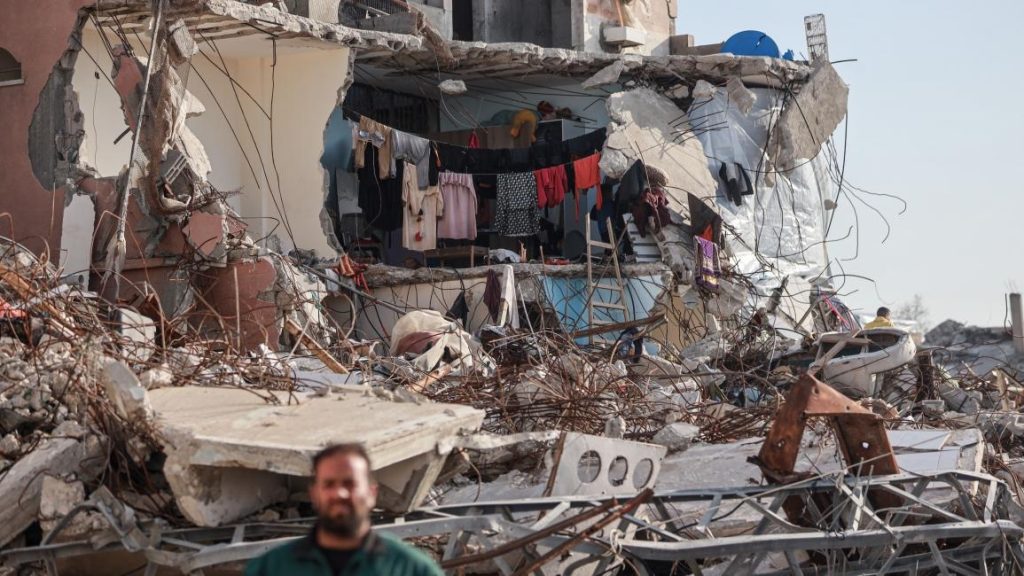Amid Threats of a Fiercer War, Reports of Progress in Deal Negotiations as Israeli Delegation Heads to Doha
As direct U.S.-Hamas talks advance, Netanyahu faces growing pressure to secure a hostage deal or risk political isolation. Internal protests and military fatigue add to Israel’s uncertainty.

Watan-As optimistic reports emerge from the U.S. and Hamas about possible progress in breaking the deadlock over a hostage deal, Israel has responded with skepticism. However, it has announced that a negotiating delegation will travel to Doha on Monday amid growing warnings against launching a new military adventure.
According to Hebrew media, American sources believe direct negotiations between Washington and Hamas could pave the way for a deal involving hostage releases and an extended ceasefire beyond Passover. The U.S. remains committed to negotiations despite what it calls “Israel’s objections.”
Meanwhile, Hamas representatives have indicated progress, but Israel has quickly denied any knowledge of such developments. At the same time, Israel has agreed to send its delegation to Doha in response to mediator requests. On Sunday, the Israeli government will determine the delegation’s mandate amid increasing talk of potential military action. It is likely that U.S.-Hamas talks have pushed Israel to return to negotiations to avoid appearing sidelined, especially as American officials accuse Israel of trying to sabotage the direct channel.
Netanyahu’s Calculations
Israeli Prime Minister Benjamin Netanyahu, an expert on U.S. politics, is aware of how former President Trump handled Ukraine’s leadership and has opted to remain silent, reluctantly agreeing to resume negotiations to avoid being marginalized by Washington. The U.S. will be sending its own envoy, Steve Witkoff, on Tuesday.

Internal Pressures
As Hamas continues to release videos of hostages pleading for their release, pressure is mounting inside Israel. Protests demanding the return of hostages have intensified, with polls showing that 70% of Israelis support ending the war in exchange for a deal.
However, Netanyahu’s government remains largely indifferent, as the protests have not reached a level that would force a policy change. Unlike the mass demonstrations against judicial reforms in 2023, the current protests are still not strong enough to compel Netanyahu to end the war.
Political Backlash
Opposition leader Yair Lapid called the U.S.-Hamas negotiations a sign of Israeli failure, warning that Israel’s reluctance to act has led to Washington bypassing it. Mocking Netanyahu, he said, “You appointed Ron Dermer to handle negotiations because of his expertise in U.S. affairs, yet now we have direct U.S.-Hamas talks.”
Former Defense Minister Moshe Ya’alon accused Netanyahu’s government of prioritizing its survival over Israel’s interests, stating that dozens of hostages have died due to political considerations. He warned that Washington opened direct talks with Hamas after realizing Israel’s government was stalling, a development he described as highly concerning.

The Risk of Renewed War
Despite Israeli threats of a more intense war in Gaza, public sentiment in Israel is increasingly against further military action. Many believe that another war would serve Netanyahu’s political survival rather than Israel’s interests. A recent Yedioth Ahronoth cartoon captured this sentiment, showing a hostage in a Hamas tunnel telling another, “You must understand, brother, the second phase is a death sentence for his government.”
Prominent Israeli analysts also warn against resuming war. Political commentator Shimon Shiffer sarcastically questioned the logic behind another military operation, arguing that despite months of fighting, Hamas remains undefeated and continues to inflict losses on Israeli forces. He urged Israelis not to believe rhetoric about cutting off Gaza’s water, electricity, and food, warning that global opposition will only intensify.
Security expert Giora Eiland outlined three potential paths for Israel:
- A full hostage deal leading to a complete withdrawal from Gaza.
- Renewing the war, though he questioned what could be achieved that hasn’t been already.
- A phased deal (exchanging hostages for temporary ceasefires), extending negotiations over time.
Eiland argued that securing a hostage deal could pave the way for undermining Hamas’ rule in Gaza through political means, rather than military force. He called for supporting the Arab peace initiative with modifications, ensuring Gaza remains under Arab control while severing ties with Israel.

Growing Fatigue Within the Israeli Army
Reports suggest that many Israeli reservists are reluctant to return to combat, with some units strongly opposing further military escalation. Analysts believe the Israeli military and home front are experiencing significant fatigue after months of war.
In Haaretz, military analyst Amos Harel raised critical questions about Israel’s ability to sustain another war. He warned that further escalation would stretch Israel’s military thin, diverting resources from other fronts, such as the West Bank and the looming threat from the Houthis. He also questioned whether Israel has enough troops left to deal with a potential conflict with Iran.
U.S. Pressure and Netanyahu’s Dilemma
With U.S. envoy Steve Witkoff set to arrive Tuesday and reports suggesting a possible deal involving the release of half the hostages in exchange for a two-month ceasefire, many believe Washington holds the key to resolving the crisis.
Analyst Chaim Levinson argued that Trump’s unpredictability makes Netanyahu nervous, forcing him to remain silent even as the U.S. engages in direct talks with Hamas. He suggested that Qatar played a key role in facilitating these negotiations, effectively cornering Netanyahu.
Ultimately, even if negotiations prevail over war, Netanyahu is expected to stall until he secures approval for the national budget and stabilizes his fragile coalition. However, his room for maneuvering will shrink over time, leaving him with two choices: either continue appeasing his far-right allies or align with Washington. Given the political stakes, Netanyahu is likely to choose the latter, hoping to secure normalization with Saudi Arabia and regain public support after the disastrous events of October 7.






